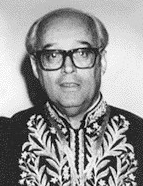

There is a paradox in the fact that, as a historian of Brazil, José Honório Rodrigues has always been attuned to historical realities beyond Brazil from the very beginning of his work and that his professional work has been so intensely internationalised. Through his tenacious and committed application of nationalist interpretations of Brazilian reality in history and historiography—combined with evolutionist, progressive, and teleological conceptions of historical practice and knowledge—he left behind a body of work marked by anachronisms and other interpretative distortions, which were reiterated and often amplified over more than forty years of intense intellectual activity. An example of this is the virulent criticism levelled at the 1730 História da América portuguesa [History of Portuguese America], whose author, Sebastião da Rocha Pita, is condemned by Rodrigues as "anti-Indian, anti-Black, pro-slavery, anti-Jewish, anti-Paulist, anti-Brazil, pro-Portugal. He is such an unwavering colonialist that, in Brazil, only a few individuals from Bahia, Maranhão, and Pará have managed to match him, having stripped themselves of the essence of the national character." Rodrigues expresses outrage that, for Pita, "the Dutch attacks are directed not against Brazilians but against the Portuguese, just as their America is portrayed as Portuguese rather than Brazilian." (História da História do Brasil , p. 498).
Nevertheless, and despite this paradox, José Honório Rodrigues' work reveals a great pioneering spirit on several fronts, especially in the history of historiography in Brazil. It also bears witness to important and lively chapters of a Brazilian historiography and intellectual tradition that has never been limited to Brazil, as evidenced by the fact that its production has been the subject of academic studies of great interest.
This work is financed by national funds through FCT - Foundation for Science and Technology, I.P, in the scope of the projects UIDB/04311/2020 and UIDP/04311/2020.
